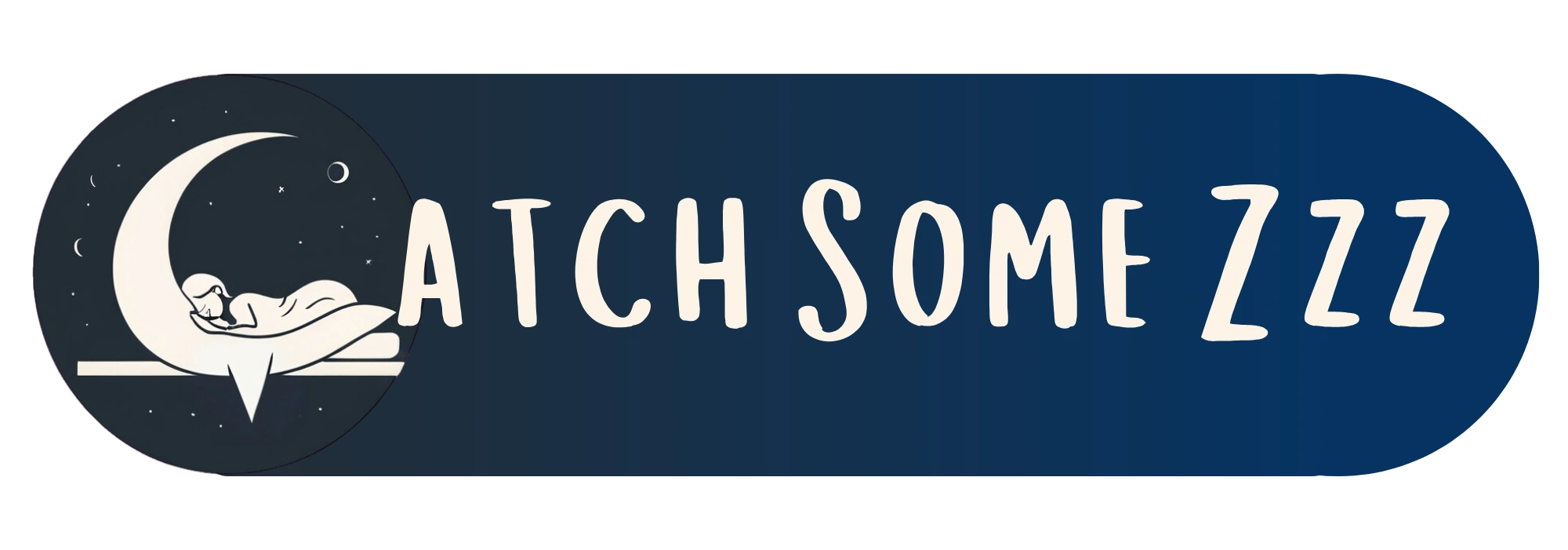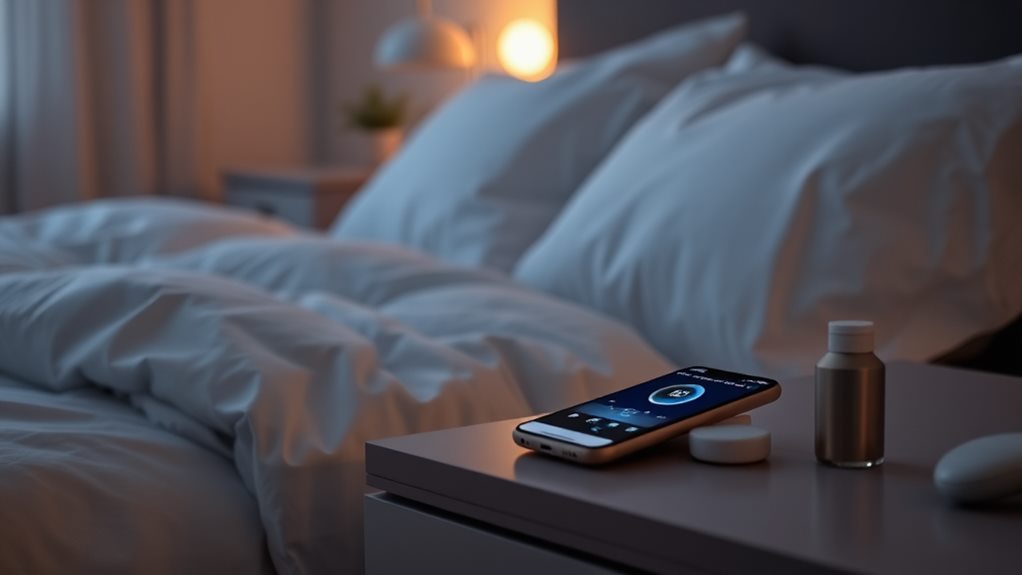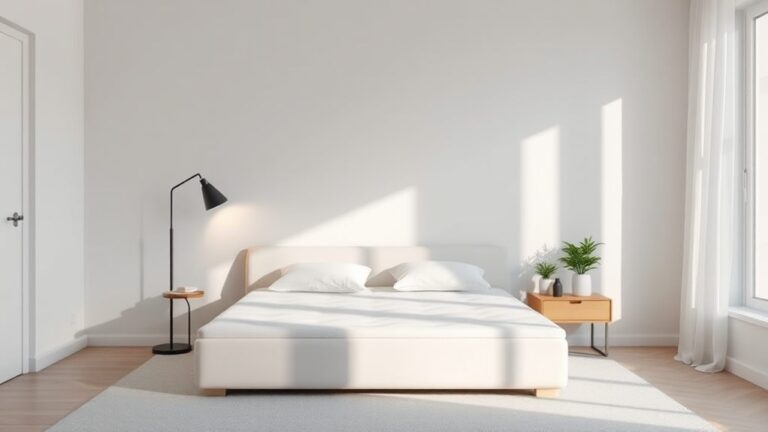To combat insomnia, you need a sleep tracking app that monitors your sleep patterns and provides personalized recommendations to improve sleep quality. Look for an app that tracks your sleep duration, sleep efficiency, and wake-up times, and offers features like smart alarm, sleep stage tracking, and relaxation techniques. Top sleep tracking apps like Calm, Fitbit Coach, and Headspace provide guided meditation, sleep schedules, and tailored guidance to help you overcome sleep anxieties. With the right app, you can take control of your sleep. By exploring the features and options available, you can find the solution that works best for you.
Nightcap Notes
- Look for sleep tracking apps that offer accurate tracking, detailed analytics, and personalized recommendations to improve sleep quality.
- Consider apps with smart alarm features that wake users during light sleep phases to help them feel rested and refreshed.
- Choose apps that offer relaxation techniques, such as guided meditation, deep breathing exercises, or relaxing music, to calm the mind.
- Ensure the app provides sleep scheduling features to establish consistent sleep patterns and regulate the body's internal clock.
- Select apps with high user reviews and ratings from users with similar sleep concerns, such as insomnia, to ensure effectiveness.
Understanding Sleep Tracking Technology
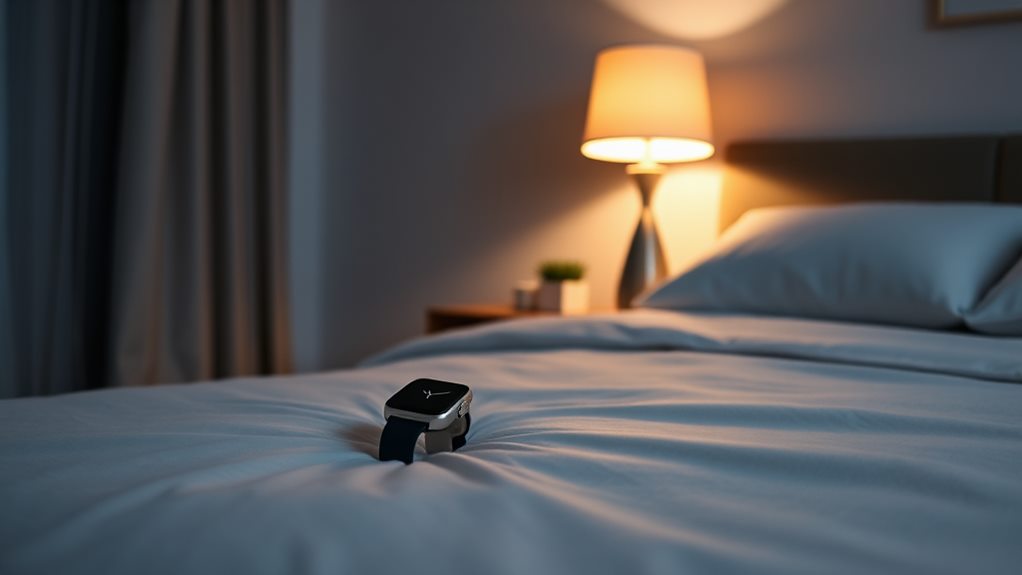
When you first start using sleep tracking apps, it helps to understand the technology behind them.
You'll get more accurate readings and make the most of the data collected. Most sleep tracking apps use a combination of accelerometer and gyroscope sensors to track your movements during sleep.
These sensors measure the frequency and intensity of your movements, allowing the app to determine when you're awake, asleep, or in a state of deep sleep. For instance, some devices like sleep tracking ring or watch use these sensors to track movement patterns, making them popular options for tracking sleep.
As you move during sleep, the sensors detect the changes in your body position and movement patterns.
This data is then analyzed using algorithms that identify patterns and stages of sleep, such as light, deep, and REM sleep.
Some apps also use audio recordings to detect sounds that might disrupt your sleep, like snoring or sleep talking.
By understanding how sleep tracking technology works, you'll be better equipped to interpret the data and make changes to improve the quality of your sleep.
This knowledge will also help you troubleshoot any issues with the app and guarantee you're getting accurate readings.
Top Features to Look For
Several key features can make or break a sleep tracking app's effectiveness.
You want an app that accurately tracks your sleep patterns and provides you with actionable insights to improve your sleep quality.
Utilizing devices that offer the most accurate sleep monitoring is essential most accurate sleep monitoring devices.
Additionally, pairing an app with a device that's specifically designed for sleep tracking can enhance the overall effectiveness of the app.
To get the best results, look for the following features:
- Accurate sleep tracking: The app should be able to accurately track your sleep patterns, including the amount of time you spend in light, deep, and REM sleep.
- Detailed sleep analytics: The app should provide you with detailed analytics about your sleep patterns, including metrics such as sleep duration, sleep efficiency, and wake-up times.
- Personalized recommendations: The app should offer personalized recommendations for improving your sleep quality, such as adjusting your sleep schedule, creating a bedtime routine, or optimizing your sleep environment.
Sleep Cycle Alarm Options
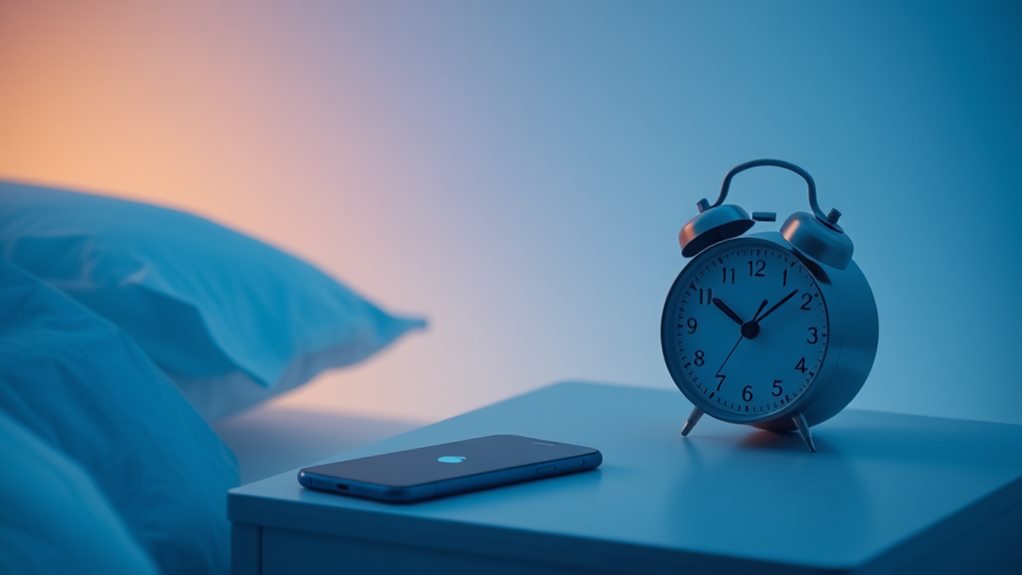
You've found an app that accurately tracks your sleep patterns and provides actionable insights – now it's time to ponder how it wakes you up.
Utilizing advanced analytics and insights software can improve the effectiveness of these apps Advanced Sleep Analytics. Many of these software solutions are now integrated into sleep tracking apps, making them more powerful tools in the fight against insomnia.
You want an alarm that will rouse you at the right moment, guaranteeing you feel rested and alert. Sleep cycle alarm options let you choose how to wake up.
Some apps use a traditional alarm approach, where you set a specific wake-up time and the app wakes you regardless of your sleep stage.
Others use a smart alarm, which monitors your sleep stages and wakes you during a light sleep phase. This can help you avoid that groggy feeling associated with waking up from a deep sleep.
You might also want to explore the option of a dynamic wake-up window, allowing the app to wake you during a specified time period. This feature gives you a bit more flexibility with your wake-up time and still certifies you wake during a light sleep phase, ready to tackle the day ahead.
Best Apps for Sleep Analysis
Analyzing your sleep patterns is crucial to understanding your sleep quality, and choosing the right app can make all the difference.
You want an app that provides detailed insights into your sleep stages, duration, and quality.
With the right app, you'll be able to identify patterns and make changes to improve your sleep.
When selecting an app for sleep analysis, consider the following features:
- Sleep Stage Tracking: Look for an app that can track your sleep stages, including light, deep, and REM sleep. This will help you understand how your body is resting and recovering.
- Sleep Quality Metrics: Choose an app that provides metrics on sleep quality, such as sleep efficiency, sleep fragmentation, and time spent awake.
- Data Visualization: Opt for an app that offers clear and concise data visualization, making it easy to understand your sleep patterns at a glance.
Apps With Personalized Coaching
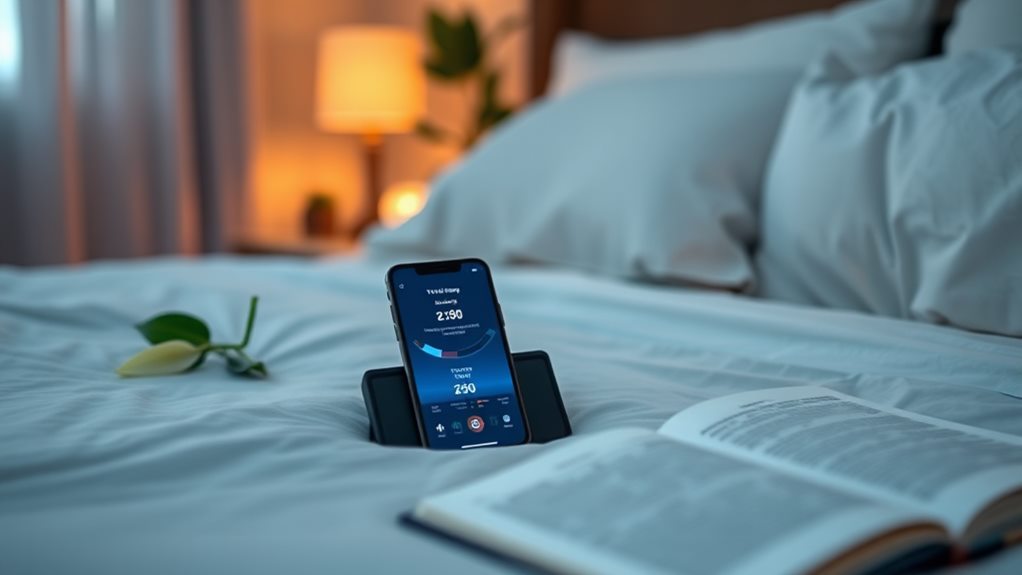
Beyond simply tracking your sleep patterns, apps with personalized coaching take it to the next level by providing tailored guidance to help you improve your sleep quality.
These apps analyze your sleep data and provide actionable recommendations to address your specific sleep challenges. You'll receive coaching on habits such as sleep schedule, bedtime routine, and sleep-conducive environment.
With personalized coaching apps, you'll set sleep goals and work towards achieving them with the guidance of the app.
Some apps offer cognitive behavioral therapy (CBT) techniques to help you overcome sleep anxieties and relax before bed. Others provide guided relaxation exercises, such as meditation and deep breathing, to calm your mind and body before sleep.
Integrating Wearable Devices Seamlessly
In conjunction with sleep tracking apps, integrating wearable devices seamlessly takes sleep monitoring to new heights.
You'll get a more detailed picture of your sleep patterns by combining data from your wearable device with the insights from your sleep tracking app. This integration allows you to track your sleep duration, quality, and stages, as well as your physical activity, heart rate, and other health metrics.
When choosing a sleep tracking app that integrates with wearable devices, consider the following features:
- Automatic data syncing: Your app should automatically sync data from your wearable device, eliminating the need for manual entry.
- Device compatibility: Verify the app is compatible with your specific wearable device, whether it's a smartwatch, fitness tracker, or other device.
- Holistic analytics: Look for an app that provides in-depth analytics, combining data from your wearable device and sleep tracking to offer actionable insights into your sleep and overall health.
Free Vs Paid App Options
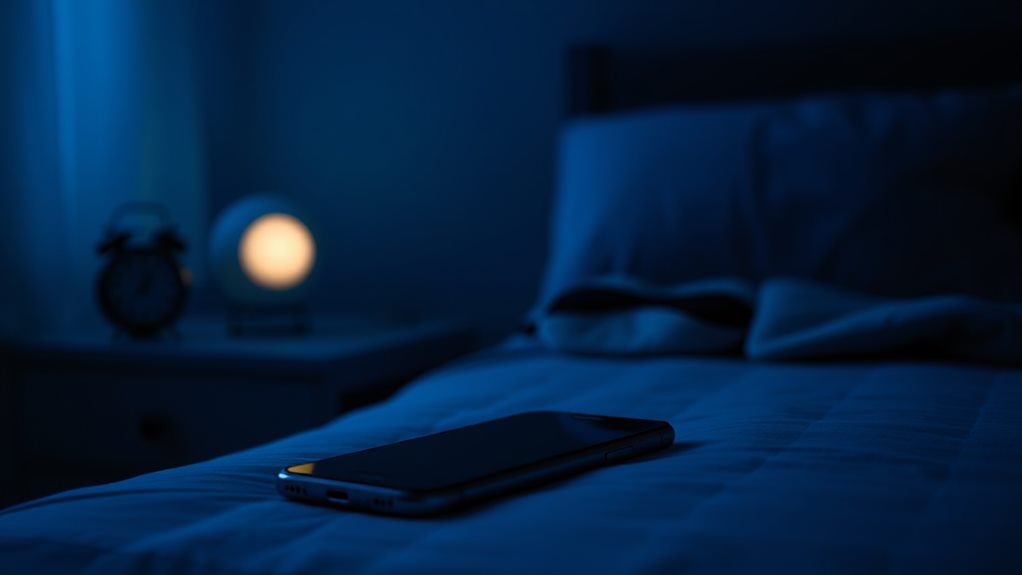
Weighing the pros and cons of free versus paid sleep tracking apps is crucial in finding the right fit for your needs.
You're likely to find that free apps offer limited features, such as basic sleep tracking and limited data analysis. While this may be sufficient for casual users, you may find that you need more advanced features to effectively combat insomnia.
Paid apps, on the other hand, typically offer more extensive features, such as personalized sleep coaching, advanced data analysis, and integration with wearable devices.
You'll also often find that paid apps provide more detailed sleep stage tracking, including REM and deep sleep analysis. Additionally, paid apps usually offer ad-free experiences, which can be a major plus if you're easily distracted.
However, you'll need to ponder whether the additional features are worth the cost. If you're serious about improving your sleep, a paid app may be the better choice.
Ultimately, thorough evaluation of your needs is necessary to choose an app that aligns with your goals and budget.
Frequently Asked Questions
Can Sleep Tracking Apps Diagnose Sleep Disorders Like Insomnia or Sleep Apnea?
Can you really rely on an app to uncover the mysteries of your sleepless nights?
While sleep tracking apps can't diagnose sleep disorders like insomnia or sleep apnea outright, they can provide valuable clues.
You'll get insights into your sleep patterns, duration, and quality, which can help you identify potential issues.
Armed with this data, you can consult a healthcare professional for a proper diagnosis and treatment plan.
Are Sleep Tracking Apps Suitable for People Who Share a Bed With a Partner?
You're probably wondering if sleep tracking apps work for people who share a bed with a partner.
You'll be relieved to know that many apps can still provide accurate data, even with a partner's movements. You just need to choose an app that uses a smart alarm or wearable device to track your individual sleep patterns.
This way, you can get personalized insights without your partner's sleep affecting your data.
Can Sleep Tracking Apps Work Effectively for People Who Sleep in Short Intervals?
You're a short-interval sleeper, and you're wondering if sleep tracking apps can work for you.
Don't worry, they can! You'll just need to look for apps that allow you to log multiple sleep sessions per day.
Many apps offer this feature, and some even provide specialized tracking modes for polyphasic sleepers.
You'll be able to track your sleep patterns and gain insights into your unique sleep needs.
Do Sleep Tracking Apps Provide Recommendations for Sleep Environment Improvement?
You're wondering if sleep tracking apps can help you improve your sleep environment.
Well, you're in luck! Many sleep tracking apps don't just monitor your sleep patterns, but also provide personalized recommendations to enhance your sleep space.
You'll get suggestions on ideal room temperature, lighting, and noise levels to create a sleep-conducive environment.
Can Sleep Tracking Apps Be Used to Monitor Sleep Patterns in Children?
You're probably the most devoted parent on the planet, and you want to know every single detail about your mini-me's sleep habits!
Can sleep tracking apps help you monitor your little one's sleep patterns? Absolutely!
These apps are like having a sleep detective on your phone – they track sleep schedules, durations, and even offer insights into sleep quality.
Now, you'll know exactly how to help your tiny human sleep better.
Conclusion
As you drift off to dreamland, a sleep tracking app is your guardian angel, watching over you and gathering secrets to decipher a restful night's sleep. With the right tool, you'll awaken to a brighter morning, armed with personalized insights to conquer insomnia. By choosing an app that syncs with your rhythms and goals, you'll be sleeping like a baby in no time, and waking up feeling refreshed, renewed, and ready to take on the day.
